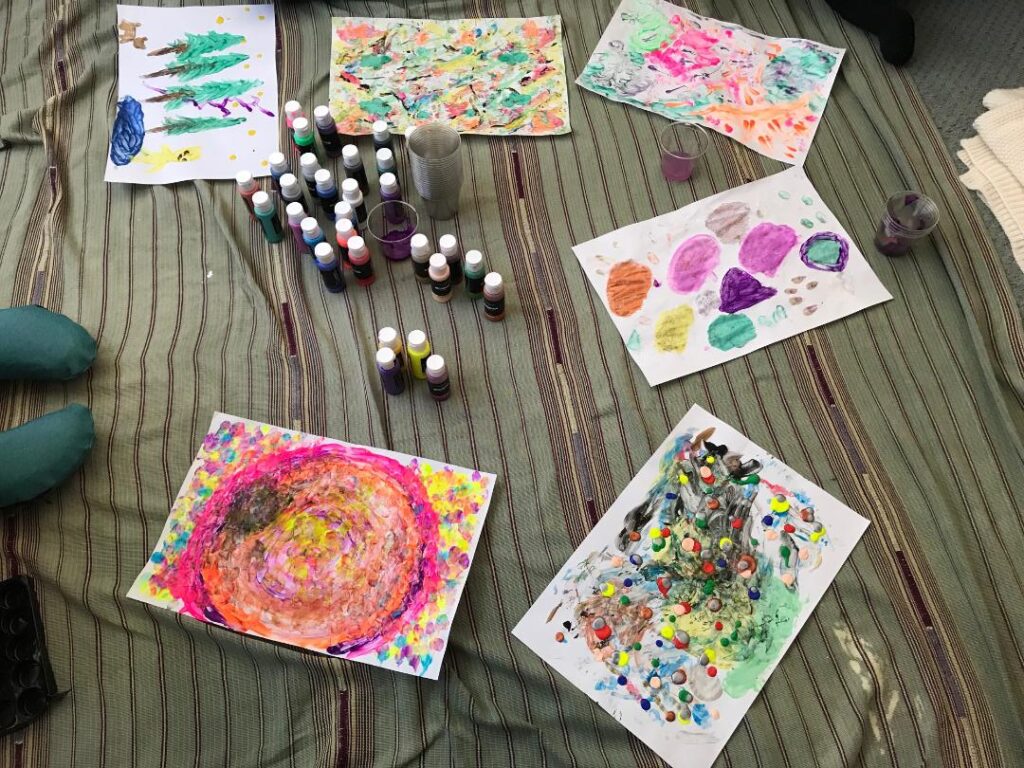
“Sally” is an ordinary woman…on the surface.
She presents herself well, and if you didn’t know better, you’d think she was confident and capable. Underneath, though, she’s filled with self-doubt. She bites her tongue to keep from showing others what she feels…because she knows they’d just ridicule her, or make it about them instead. She’s wary of the first sign of distress in someone else, because it just might end up in them exploding in a fit of rage. She’s terrified of conflict, because she’ll just end up being attacked, being wrong.
The worst thing is, though, that she doesn’t know who she is. She doesn’t even know that it’s ok to answer that question, or live in accordance with her own needs and values.
Sally is a woman walking on eggshells!
Impact of Being Raised by an Adulting 101 Dropout
Having an emotionally immature parent, even one with Borderline Personality Disorder, or BPD, or with Narcissistic Personality Disorder, or NPD, isn’t always easy to identify. Particularly if you’re the child of one. You long ago learned to agree completely, in order to maintain the peace, because those with the illness and no willingness to change (why should they, it’s everyone else’s fault!) experience disagreement as rejection. In their world, the other is all-good, or all-bad. Anyone in their lives can tell you, they’re never quite sure when the switch gets flipped, and suddenly the exciting flow of attention and admiration gets cut off, leaving you cold and alone, prey to the hostility that follows.
As you look around, you feel how foreign you are from others who aren’t constantly second-guessing themselves, who are at ease with being less-than-perfect, and comfortable in relationships where they can let themselves be themselves. Your shame might even convince you not to talk about it because of course no one will understand.
Except for others raised by those with immature parents.
What this group is like
Imagine getting together in a group, debunking the lies you learned about your selves and the world. Sharing the risk of removing the mask you’ve built, and instead recognizing that not only are those around you more wonderful as their authentic selves…so are you. Stepping out of the old “normal” into a new one, where mistakes are made, and repaired; distress seen with compassion and given comfort; conflict is practiced with ever-increasing confidence, no longer about attack and defend but about emerging understanding, honesty and mutual care.

I began this group in 2018, not knowing if it would be truly helpful. Three groups–“generations,” I call them–have trusted me to lead them through a process I developed after years of working with individual clients struggling just as my composite “Sally”. We’ve addressed the issues of how securely (or not) we connect to others, our boundaries (or lack thereof), and our capacity to get and stay connected to ourselves while reaching out for others. We address perfectionism and sibling and other close relationships, and how (or if) to forgive our parents. Somatically based, people are encouraged to get and stay in their bodies, supporting a healthier nervous system.
What this coaching course consists of:
Each of you will receive a one-on-one coaching session with me before we begin group, and again after the group is over, in order to digest all that you have learned, and to honor all the ways in which you’ve grown. The six group meetings will all be ninety minutes, and will be limited to a maximum of six people, in order for you to engage with each other around each topic. Before each meeting, held every other week, you’ll be able to watch a video and do an exercise that brings home how the topic impacts you personally. This will enrich the group discussion, and your benefit from sharing in these explorations. All groups will be held online; you may choose either online or in-person for your individual coaching sessions.
Please keep in mind that this is not a psychotherapy group. That is, we won’t be able to go deeply into current clinical issues you may be having. Therefore, this group is excellent for uncovering material that your psychotherapist and you can safely explore in-depth, should you suffer from deep depression, significant generalized anxiety, or current crippling symptoms of PTSD.
“It turned out to be one of the most healing acts of self care I had ever experienced!..to be surrounded by a rainbow of people so different than you and talk about such strikingly similar experiences. It was nourishing, eye opening and therapeutic.” -RQ, father with NPD
“Though I thought I knew a lot about the borderline environment, there were many aspects of my experience that I did not relate to (my upbringing) until I saw in our group all the heads nodding in understanding or the outbursts of shared laughter as identification with whatever was being discussed. It was most eye-opening to see the kind of things that we all shared–that was very personally reassuring, especially given that a key component of the borderline upbringing is the crazy-making aspects that make you doubt your own perceptions.” –SB, mother with BPD
If you can’t make it, but recognize that you’re experiencing the impact such a parent can have, I urge you to reach out. I’ve also written some articles that might help; feel free to go to the articles section. Let’s make it end here!
For more specifics on the group itself, here is a handy read.
Fee for the entire class,
Including two individual sessions of one hour each, six online classes, and six group meetings of ninety minutes each: $2000. Payment plans are available.
Dates for next group
Next free discussions: Dates to be determined, pending enough interest from those with an initial consult.
Psychoeducation and Experiential Online Groups: Must attend initial free discussion above, to see how you respond in groups.
Individual Coaching:: As a stand-alone as well as for those who have completed the group (also see FaceBook Group)